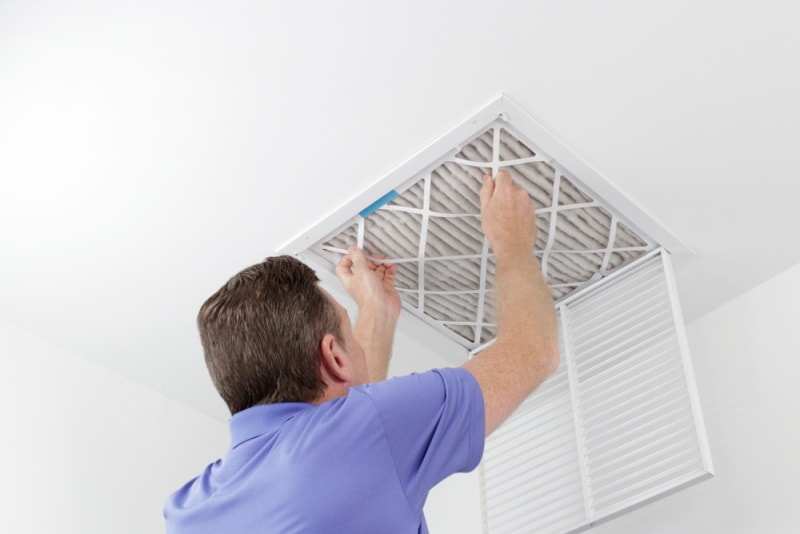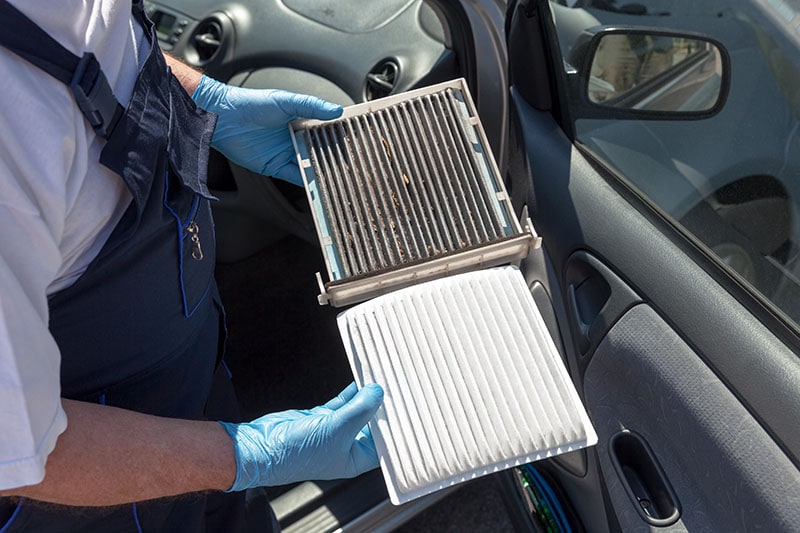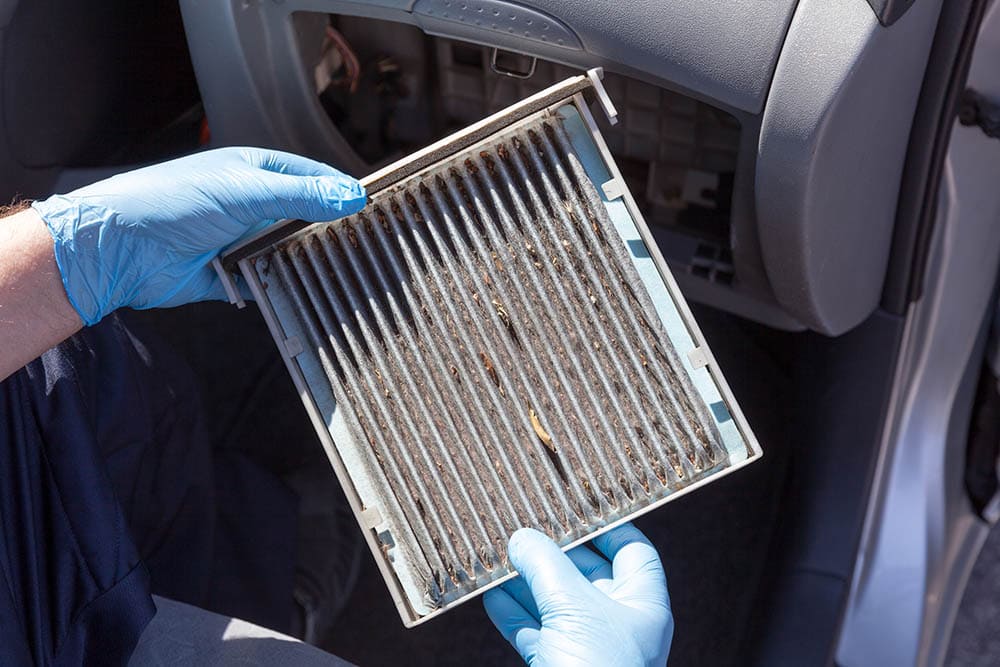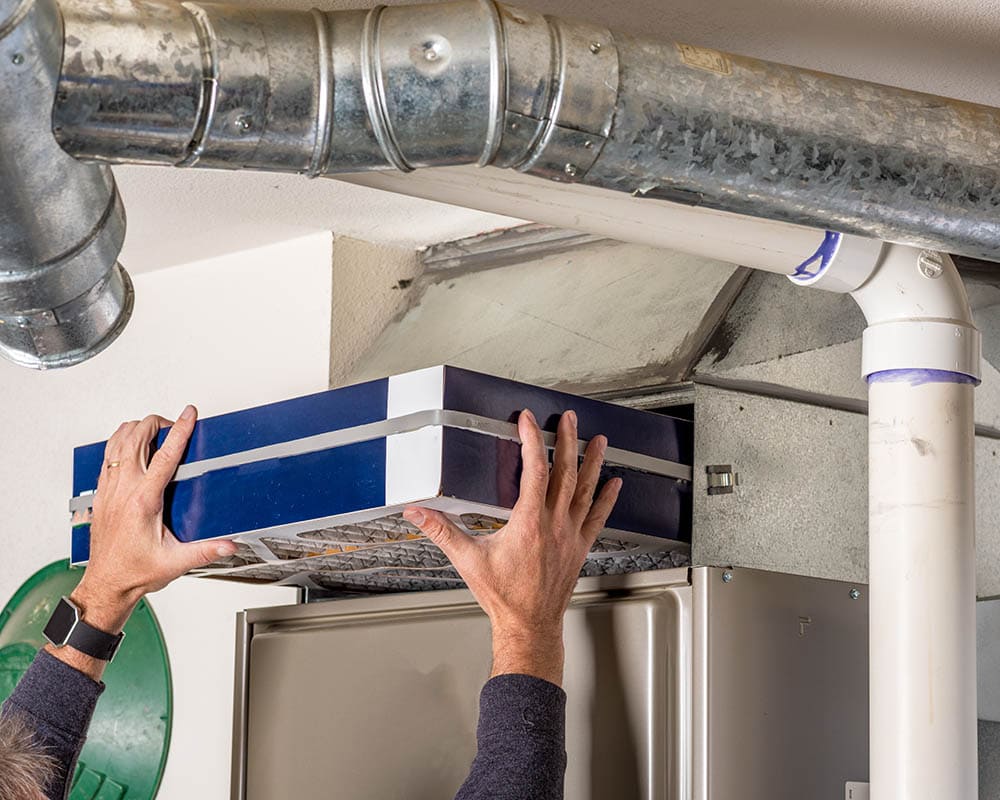Are Air Filters Recyclable? How Do You Properly Dispose of Them?
-
Codee Chessher
- Last updated:

Air filters in air conditioners, fans, and other ventilation devices keep us safe by absorbing dust, allergens, and other harmful airborne contaminants. When your filter gets dirty, worn, or damaged, you probably just chuck it in the trash. But how are you actually supposed to dispose of air filters? Are they recyclable?
Sadly, air filters aren’t recyclable. They’re typically clogged up with dirt, dust, and other useless debris. The only materials of use in them are polyester and other fabrics, so it’s not worth the effort to recycle filters. There are washable, reusable air filters you can use as an alternative to replacing your filter every month or so.
Lastly, we have to mention that air filter frames are usually made of cardboard, so it may be possible to separate the recyclable frame from the filter. This helps to reduce waste over time. Let’s get into how to dispose of air filters, as well as some other info you may find interesting.
How to Properly Dispose of Air Filters

Most air filters should be thrown in the trash and aren’t recycled by conventional recycling centers. It’s very important that you avoid putting air filters in the recycling bin because they can clog up the recycling process later on. To avoid dust and dirt getting everywhere when you throw away your air filters, put them directly into a plastic bag and tie it shut before disposal.
Ways to Reduce Air Filter Waste

The most obvious way to extend an air filter’s usefulness is to simply use it for longer than recommended. Wipe away dust and dirt with a wet cloth once in a while and simply put it back. Its performance won’t be great, but you can get more use out of the average air filter. We definitely suggest replacing your filter once it becomes visibly worn or damaged, however. Don’t keep using old filters if anyone in the home has allergies, as filters become less effective over time.
Many HVAC companies that sell air filters include a mail-in rebate program. They’ll typically send you a small amount of money for your old air filters to reuse in the creation of new filters. Check the packaging on your air filters for more info or call your filter’s manufacturer to check if they have such a program.
Lastly, you can invest in a washable, reusable air filter. These are typically made of stronger fibers than disposable filters and can last months or even years with good care. They cost a lot more upfront, but you’ll save money by not buying filters. All you need to do is wash the filter with a wet cloth every month or two, then put it back. This is probably the best way you can make an impact on air filter waste.
Do Air Filters Affect My Home’s Carbon Footprint?

Yes! Worn, dirty air filters put more strain on your HVAC system than clean filters. The system uses more electricity to do the same job, which increases your electricity bill. In turn, this uses more energy from the power grid. Unless you have supplementary solar power, that means you’re contributing to reliance on fossil fuels. If possible, keep your air filters clean to help make your HVAC system as efficient as possible. It helps the environment, too!
In Conclusion
Air filters aren’t a big source of waste, but they add up over time. You can’t recycle your old air filters, but you can invest in a reusable filter to cut down on air filter waste in the near future. Other than that, the only thing you can really do is use your filters for longer before you replace them.
Featured Image Credit: Serenethos, Shutterstock
Contents

